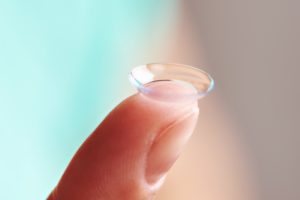Your night vision will naturally decline as you get older. While it may not always be a problem, it can make activities such as night driving more hazardous. Unfortunately, many people don’t take this fact as seriously as they should.
 Night vision can be impaired not only by the darkness, but also by the sudden glare of lights from oncoming cars, traffic signals, etc. Our eyes are forced to constantly adjust, leaving brief periods of impaired vision between adjustments.
Night vision can be impaired not only by the darkness, but also by the sudden glare of lights from oncoming cars, traffic signals, etc. Our eyes are forced to constantly adjust, leaving brief periods of impaired vision between adjustments.
Tips on how to drive safe at night:
- Make sure that you see your eye doctor regularly for eye exams. (At least once every two years, more often if you have certain eye conditions).
- Ask your eye care professional to prescribe special eyeglasses that may help you see better on the road at night. Anti-reflective coatings can cut down on glare.
- Minimize the risks of driving at night as you get older by planning your trips before you leave home. Drive only on streets you know, and avoid dark, unlighted roadways.
- Wear good sunglasses on bright days and take them off as soon as the sun goes down. Prolonged exposure to glare from sunlight or headlights can temporarily affect your visibility at night. It can also lead to eyestrain and drowsiness.
- Keep your windshield clean. Sometimes dust can accumulate on the inside of your windshield that you may not notice during the day. This dust can catch the light from oncoming cars’ headlights and make it difficult for you to see.
- Dim the lights on your dash. Bright interior lights can hinder your visibility of things outside your vehicle.
- Do not look at oncoming headlights while driving; it can leave you blind for as much as five full seconds.
- If you are driving through wooded areas, use your peripheral vision to watch for deer on the sides of the road. Oftentimes, you won’t see the deer themselves, but their eyes reflecting the headlights of passing cars. If you have any passengers in your vehicle, ask them to keep watch so you can focus your attention on your driving.
- If you are over the age of 60 it is important to continually evaluate your nighttime driving skills, so that you are not endangering yourself and others.


 Most problems associated with contact lenses cause minor irritation, but serious eye infections from poor lens hygiene can be extremely painful and may lead to permanent vision loss. About 80 to 90 percent of contact lens-related eye infections are bacterial. A type of infection you can get is called pseudomonas aeruginosa, a fast-growing bacterial infection that can lead to a hole in your cornea. Unfortunately, patients who get this infection have a high chance of permanent scarring and vision loss. Beyond bacteria, fungal infections are also potential threats to your vision.
Most problems associated with contact lenses cause minor irritation, but serious eye infections from poor lens hygiene can be extremely painful and may lead to permanent vision loss. About 80 to 90 percent of contact lens-related eye infections are bacterial. A type of infection you can get is called pseudomonas aeruginosa, a fast-growing bacterial infection that can lead to a hole in your cornea. Unfortunately, patients who get this infection have a high chance of permanent scarring and vision loss. Beyond bacteria, fungal infections are also potential threats to your vision.